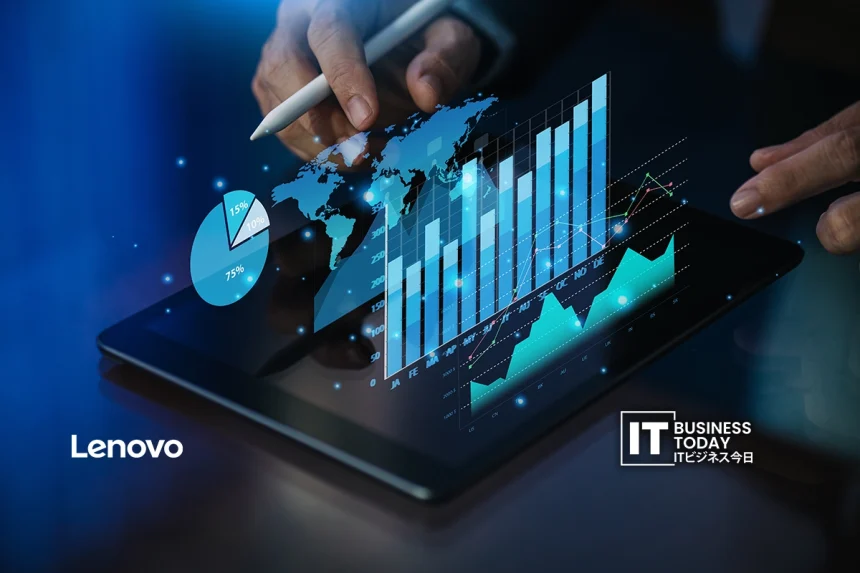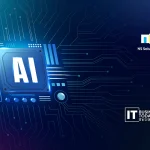Lenovo Enterprise Solutions LLC (Lenovo) explained its enterprise business strategy in Japan.
Zhang Lei, who became president and CEO of Lenovo Enterprise Solutions in March 2025, said, “We are in a position of challenger in the Japanese market. Although we have excellent technology and products, we have not been able to get Japanese customers to understand them and provide value, which is something we regret. ” He expressed his intention to work on business growth in Japan from three points: “innovation,” “pursuit of quality,” and “products integrated with services.” ISG (Infrastructure Solutions Group) is responsible for servers and storage throughout the Lenovo Group, and Lenovo Enterprise Solutions is a Japanese subsidiary within that group. ISG’s business is growing significantly globally, with sales for fiscal year 2024 (April 2024 to March 2025) increasing 63% year-on-year to $14.5 billion. President Zhang reiterated, “Japan is in a position to pursue global growth.
The new technologies and values that the Lenovo Group possesses are understood globally, but in Japan, this has not been properly communicated. This failure has created a situation in which Japan must pursue global growth.” He continued, “First of all, I would like to convey Lenovo’s strengths in the field of enterprise AI. There is an increasing trend for companies to use AI to solve business problems, so we will focus on providing the infrastructure for this and realizing value. We will also strengthen our sales system for small and medium-sized enterprises and approach this market with our partners. We will also focus on listening to the voices of Japanese companies and providing feedback to the development department at our headquarters.” He then declared, “Japan is a large market. It is expected that Japanese business will exceed the high growth rate of the global market, and that is my role. Japan can grow even more. We have a team for that purpose. We want to achieve this in the near future.” The Lenovo Group has also launched a “Hybrid AI” strategy using Personal AI, Enterprise AI, and Public AI.
“Lenovo is a company that covers everything from smartphones to PCs, servers, storage, and data centers, and is promoting Hybrid AI through the expansion of its ecosystem. This is a big difference from other companies. As AI is integrated into all areas, we will accelerate our proposals using Hybrid AI.” Lenovo Enterprise Solutions will work on three points: “Innovation,” “Pursuit of Quality,” and “Integrated Products with Service Excellence.” The first of these, “Innovation,” includes strengthening the water-cooled server business. Lenovo’s unique Neptune technology, based on IBM technology, was launched in 2012 and will evolve to its sixth generation in 2025. Here, it is emphasized that tap water (fresh water) can be used, cooling is possible even at 40 degrees Celsius, the same temperature as bath water, and it is possible to cool not only CPUs and GPUs, but also memory, boards, and power supplies, and no cooling fans are required. This will reduce power consumption by up to 40%. “ThinkStation’s water-cooled servers are expected to be used for a wide range of purposes, from digital twins to hosting large-scale language models within the workplace.
Also Read: Unsung Fields, Tenstorrent enter Capital and Business deal
With the spread of AI, there is a return to on-premise use, and data is stored locally and analysis is performed in the cloud, so the use of hybrid cloud and multi-cloud environments is increasing. In addition, there are more business negotiations for enterprise use, such as introducing small water-cooled servers or installing containers in parking lots and running water-cooled servers inside them. The benefit of reducing the power consumption of servers in offices is also attracting attention. In addition, we will also promote consumption-based proposals using TruScale for small and medium-sized enterprises that have issues investing in water-cooled servers,” he said. According to the company’s survey, Japanese CIOs place importance on three points: “improving business agility,” “improving sustainability,” and “improving ROI,” and in particular, he pointed out that “improving sustainability” is a theme unique to Japan. “It is predicted that about 10% of all electricity will be used in data centers in 2030. Measures are needed to prevent the destruction of the earth. This is where Lenovo’s water-cooled servers can contribute.” To strengthen the business of water-cooled servers, the company also plans to strengthen collaboration with partners and build an ecosystem. Tetsuro Hayakawa, head of the architecture division at Lenovo Enterprise Solutions, said, “The composition of companies participating in traditional IT ecosystems is changing. We are seeing more collaboration with CDU manufacturers, piping contractors, and construction industry companies. This will become the new ecosystem for water-cooled servers.” Meanwhile, the ThinkEdge, which is characterized by its compact size, is equipped with a GPU and SIM card, but is also dust-proof and vibration-proof. “It can be operated, communicated, and AI can be used even in harsh manufacturing environments. We have a lineup that is subdivided by workload,” said President Zhang. Regarding server products, he emphasized that the company places importance on reliability, security, and performance.
To back this up, they showed that Lenovo has been rated the best x86 server for 11 consecutive years with the least amount of unplanned downtime of more than four hours, that it has been the most resistant x86 server to security attacks for five consecutive years, that it has set 670 world records in industry benchmarks that show server performance, and that Lenovo servers are the most used in about one-third of the TOP500 supercomputer rankings.At the “NEC Quality” event, NEC introduced the integration services being carried out at the Yonezawa facility of NEC Personal Computers in Yonezawa City, Yamagata Prefecture. Although servers are not manufactured in Japan, almost all of the imported servers are subjected to various tests, including aging tests, kitting, racking, and software installation at the Yonezawa facility. “It takes time, but we can ensure quality. By carrying out the inspections at our own factory by our own employees, rather than leaving it to our partners, we can ship the servers with the Japanese quality that is unique to the Yonezawa facility. Japanese companies are characterized by their emphasis on quality. One company has asked us to always have the servers inspected at the Yonezawa facility before delivering them. I think this is not excessive quality, but an initiative that should be spread globally.”
The delivery time is five days, and the inspections are carried out at the Yonezawa facility, but in the case of some users, such as large-scale data centers, who prioritize shorter delivery times or have a system in place to carry out their own inspections, there are exceptional cases where the servers are delivered directly without going through the Yonezawa facility. Lenovo also provides maintenance services by dedicated Lenovo engineers. The company offers 24-hour support in Japanese, remote technical support, and rapid delivery of maintenance parts from 10 large-scale bases nationwide and parts centers in various locations. The third point, “Integrated Products with Service Excellence,” says, “Instead of providing products to customers, we provide value. We don’t ask customers to buy our products because they are the latest technology, but rather we prioritize solving business problems. That is where Lenovo’s role is.” He also says that the latest technology is not necessarily required to make optimal proposals to solve problems. Lenovo Enterprise Solutions extracts issues through dialogue with user companies through the professional services provided by SSG (Solution & Service Group).
In addition to promoting the provision of problem-solving solutions, the company also showed that it makes proposals based on advanced examples owned by the Lenovo Group. Here, the company also proposes the knowledge accumulated through “Lenovo Powers Lenovo,” which utilizes IT/AI within the Lenovo Group. “The customer’s IT department and the Lenovo Group’s IT department can talk to each other and work on solving problems. We can share not only technology talks, but also issues and pains associated with digitalization within the company.” Prior to becoming president of Lenovo Enterprise Solutions, President Zhang was employed at Intel Japan as Executive Officer and General Manager of the Industry Business Unit, where he led sales staff and engineers as head of the Dynamic Sales Team and promoted the spread of eight horizontal technology solutions in 10 major industries. He joined Intel in 1995 and was involved in the launch of a factory in China that performs post-processing of semiconductor production. In 2000, he transferred to the Japanese corporation in conjunction with the start of managed services in Japan. Since then, he has had 25 years of experience in Japan. From 2011 to 2014, he was in charge of enterprise solutions including PowerEdge servers at Dell Japan. He then returned to Intel. His total experience at Intel is more than 20 years. He retired from Intel in November 2024. He is known in the industry as Mr. Lai. “What surprised me most when I joined the Lenovo Group was that it has more than 30 manufacturing bases around the world. Moreover, in response to geopolitical issues, the company is still increasing its manufacturing bases. It is a company whose strength is in resilience. Also, with ISG, which is responsible for servers and storage, IDG (Intelligent Devices Group), which handles the PC business, and SSG, which handles the services business, there is a strong image of the group being vertically divided, but in reality it is horizontal and has good ventilation. There is also strong cooperation in terms of strategy,” he said, highlighting the strengths of the Lenovo Group.
SOURCE: Yahoo








